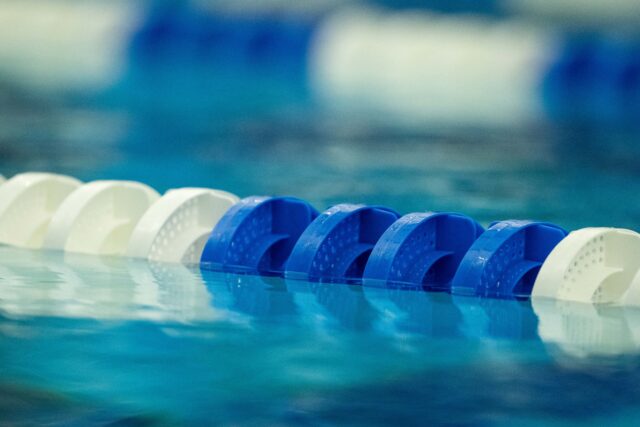By James Sutherland on SwimSwam

The Enhanced Games, the controversial start-up promoting an Olympic-style event without drug testing, filed an $800 million lawsuit in late August, claiming multiple organizations were illegally blocking athletes from participating in the event.
World Aquatics, USA Swimming and the World Anti-Doping Agency (WADA) were all listed as defendants in the case, accused of making a coordinated effort to target the Enhanced Games. The Games allege that the three organizations are breaking antitrust law by telling athletes not to participate in the competition and are seeking financial damages, along with a court order to halt the orchestrated effort.
In its press release announcing the suit, the Enhanced Games said it is seeking at least $200 million in actual damages, “increasing to at least $800 million after statutory trebling, punitive damages awards, and the recovery of attorneys’ fees.”
Front Office Sports spoke to several legal experts who believe the Enhanced Games may have a legitimate case.
World Aquatics has enacted a new bylaw that bars any Enhanced Games competitors from ever competing in an event sanctioned by World Aquatics, which Marc Edelman, an antitrust expert and sports law professor at Baruch College and Fordham University, said resembles what courts often call a group boycott.
“If the basis for disallowing the individual is that they have competed in a rival game, that sounds like a group boycott and a restraint of trade and a reasonably easy case for an antitrust violation,” Edelman told Front Office Sports.
Enhanced Games President and Founder Aron D’Souza said: “World Aquatics’ By-law 10 is a thinly veiled attempt to strong-arm the swimming community into boycotting the Enhanced Games. They’re holding elite swimmers and support staff hostage, threatening lifetime bans from Olympic events – all without a single anti-doping violation. To claim this is about protecting the ‘integrity’ or ‘health and safety’ of athletes is utter hypocrisy.”
D’Souza said in June that the Enhanced Games would cover the legal fees for any clean athletes who participate in the Games and are then banned from mainstream competition.
Christine Bartholomew, an antitrust law professor at the University at Buffalo School of Law, told Front Office Sports that the plaintiffs will likely have to prove that World Aquatics, USA Swimming and WADA worked together to get the group boycott claim.
“The case does present a viable antitrust theory,” Bartholomew told Front Office Sports. “Boycotts can be illegal under the Sherman Act. The tricky part for the [group boycott] claim is proving the defendants actually agreed rather than acted unilaterally. Whether there are sufficient allegations of an agreement is a frequent question on a motion to dismiss. I anticipate the defendants will raise that challenge as the case proceeds.”
Antitrust attorney Mark Levinstein said it’s a “powerful weapon” that federations like World Aquatics and USA Swimming have, referring to the fact that they ultimately have final say on whether or not an athlete is eligible to participate in the Olympic Games.
“If you control the Olympics and you control all the major competitions that feed to the Olympics, and all the events of the national governing bodies that are part of the Olympic movement, and you can say, ‘If you do whatever it is you’re going to do, you’ll be banned from all of that,’ that’s a powerful weapon,” Levinstein told Front Office Sports.
D’Souza also spoke to Front Office Sports, explaining how World Aquatics is acting in an anticompetitive manner.
“For elite international swimmers, they have the right to participate in multiple markets so they can maximize their compensation,” he said. “By foreclosing competition, (World Aquatics) is reducing the ability of elite swimmers to increase their compensation through fair and protective market competition.”
World Aquatics notably just reached a $4.6 million settlement with former International Swimming League (ISL) athletes in an antitrust case stemming from 2018. The global governing body still has a separate suit with the ISL scheduled to go to trial in early 2026.
The Enhanced Games has scheduled its first event for May 2026 in Las Vegas, with up to $7.5 million up for grabs in prize money across swimming, track and field and weightlifting events. Most notably, $1 million is on the line for breaking the world record in the 50-meter freestyle or the 100-meter dash.
Former Greek Olympian Kristian Gkolomeev has already gone under the world record in the men’s 50 free, doing so after joining the Enhanced Games earlier this year. Other notable swimmers committed to the Games thus far include Olympic medalist James Magnussen, world record holder Andrii Govorov and Bulgarian Olympian Josif Miladinov. American Megan Romano became the first female to join the organization in early August.
In addition to World Aquatics’ bylaw prohibiting Enhanced Games competitors from competing in any of their events, WADA has publicly condemned the Enhanced Games, while USA Swimming sent an email to National Team Athletes, Coaches, and Support Staff in May cautioning them against engaging with the Games.
Read the full story on SwimSwam: Law Experts Weigh In On Viability of Enhanced Games $800 Million Lawsuit


